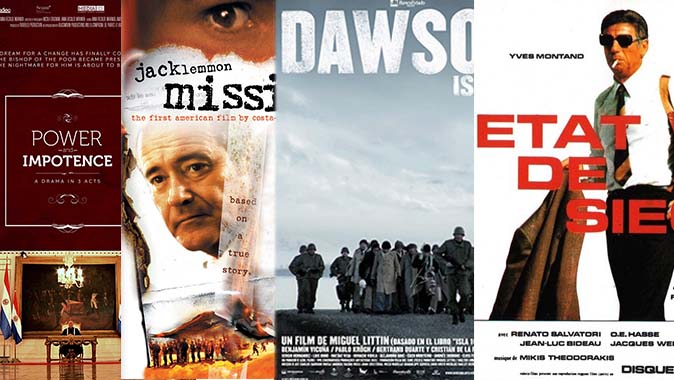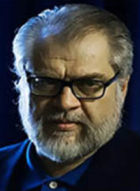TEHRAN (AIPFF) - According to the public relations office of the AIPFF, Today on Aug. 25th 2016, four selected films best known for depicting coup d'etat, will be showcased. The screening will take place at Soureh Hall of Howzeh Honari from 11:00 to 22:00.
TEHRAN (AIPFF) – According to the public relations office of the AIPFF, Today on Aug. 25th 2016, four selected films best known for depicting coup d’etat, will be showcased. The screening will take place at Soureh Hall of Howzeh Honari from 11:00 to 22:00.
On the sideline of the festival, Hassan Abbasi, head Borderless Security Doctrinal Analysis Center, will give lecture about Coups and Their Factors around the world.
The theme of the first section of AIPFF is reviewing coup d’etat movies around the world and also highlighting the role of the global arrogant powers in orchestrating coups in other countries.
Films:
“Missing” by Costa Gavras
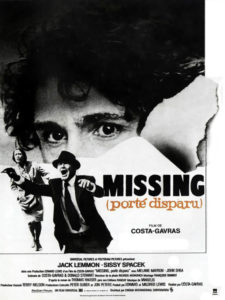
The film opens with Costa-Gavras’ statement that the events of the film are true. At first, When Ed arrives in the Latin American country where his son Charles Horman worked, Ed blames his son and his radical political views for his disappearance, but he is later crushed when discovering that the government he reveres so highly has been involved with his son’s disappearance and possible death as a collaborator of the dictatorship.
“State of Siege” by Costa Gavras
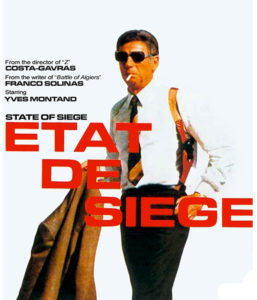
The incident dramatized herein is the kidnapping of a U.S. official somewhere in Latin America. The director’s sympathies clearly lie with the kidnappers, especially since the official (played by Yves Montand), ostensibly an expert in traffic control, has been assigned as special advisor to the government’s secret police, training these worthies in the art of the torturing of political prisoners. Uruguay was the country where this story actually took place; though no names are given, there’s little doubting the identity of Costa-Gavras’ fictional locale. Despite its up-to-date radicalism, State of Siege adheres to time-honored Hollywood formula, with ugly, vulgar bad guys vs. handsome, articulate good guys.
“Dawson Isla 10” Directed by Miguel Littin
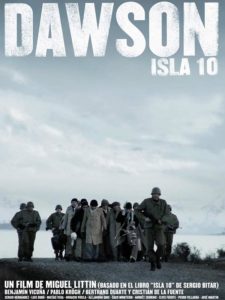
The 1973 Chilean coup d’état resulted in President Salvador Allende being overthrown and Augusto Pinochet coming to power in Chile. This film tells the story of the former members of Allende’s cabinet, who were arrested and incarcerated in a political prison, specially designed as a concentration camp on Dawson Island, Tierra del Fuego. The camp had been used in the early 20th century to house Selk’nam and other indigenous peoples, moving them from the main island to end their interference with the large sheep ranches that had been established, as they persisted in hunting in their former territories.
In 1973 hundreds of other suspected communists and political dissidents were also imprisoned on Dawson Island by Pinochet’s government. Under the strict control of the Chilean Navy, these men struggled to survive the freezing temperatures and harsh conditions.
“Power and Impotence” by Anna Recalde Miranda
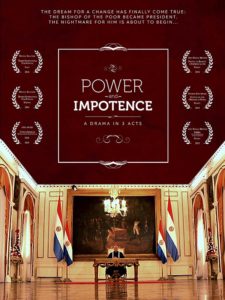
Power and Impotence is a moc-democracy drama about power. In a political thriller crescendo, we follow the adventures of Fernando Lugo, former bishop of the Liberation Theology elected President of Paraguay in 2008. Until the tragic ending, the coup d’état of June 2012, we benefit from a unique behind-the-scene point of view. A unique period in history is documented in an intimate, universal film, providing an insight on the fragile nature of politics.
